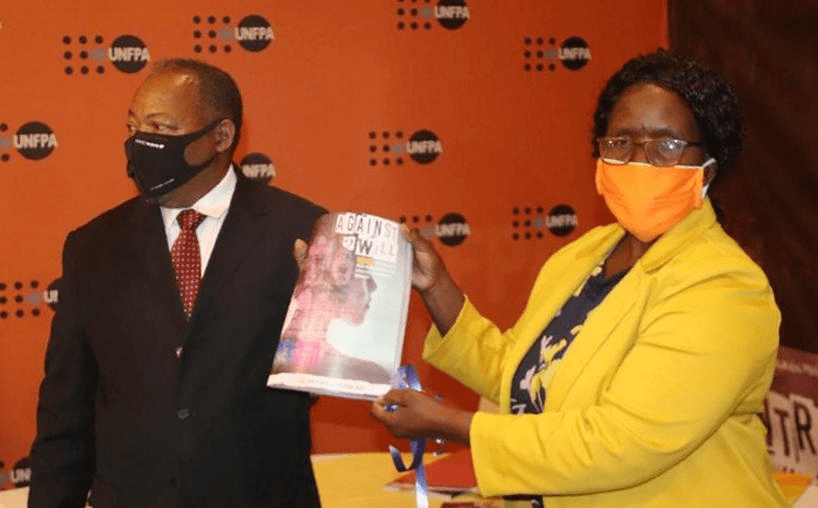Narrating how a trip to a shop surprisingly ended up with her becoming a bride to her then 22 year old schoolmate, Phumzile Magagula, now 31 years, described the incident not only as shocking but inhumane too.
“It was getting dark and I was rushing home. A man with two boys appeared before me and they swiftly grabbed me and carried me to his homestead where I was locked in his house for the whole night. At around 5 am the next morning, two women came knocking and demanded that I get dressed as I had been customarily married," said the 16 year old Phumzile.
According to the 2017, National Housing and Population Census report, Phumzile, together with a thousand other girls aged between 12 and 18 years, constitute 0.4% of the married women cohort in Eswatini. This statistic clearly indicates that child marriage is a problem in Eswatini.
Minister of Economic Planning and Development, Honorable Dr Tambo Gina, identified a few cultural practices that stifle on the rights of women and the girl child. The Minister was the guest of honour during the launch of the 2020 State of the World Population Report on the 30th of June 2020, themed “against my will: defying harmful practices that harm women and girls and undermine equality.
“Some of these harmful practices in our society are embedded in our culture. There is a need to revisit these as per the advice of King Sobhuza II, who urged that we do away with all that poses harm and protect our people. We know, harmful practices like child marriage, may act against one’s ability to reach her fullest potential,” noted the legislator.
UNFPA Acting head of Office Margaret Thwala-Tembe, explained the significance of the report in ensuring rights and choices for women and girls in society.
“This report makes a case about 3 most harmful practices in society; female genital mutilation, son preference and child marriage. It also calls upon communities to rise up against these practices because they are not only a violation of the rights of women and girls but they also undermine development.”
The State of the World population report, which is published annually by UNFPA, draws attention towards a topical issue and stimulates advocacy and action. Therefore, Thwala-Tembe would not miss an opportunity to urge for a united front against violence against women and girls making reference to some shockingly high lockdown statistics.
“We need to act swiftly and protect women and girls in our communities. The recent COVID-19 pandemic has opened doors to its friends; domestic violence and child marriage. During this lockdown, 1685 women and girls suffered domestic violence while 384 were sexually abused,” Thwala-Tembe added.
As the country looks to ending gender based violence and other harmful practices by the 2030, it is worth noting that the strides it has taken are indeed bold and aim at leaving no one behind.
“The country has enacted several pieces of legislation aimed at protecting women and girls. These include, amongst others, the 2005 National constitution, the 2012 Welfare and Child Protection Policy 2018 sexual offences and domestic violence bill,” elaborated Gina.
One common feature among these legislations cited by the Minister is that they all safeguard the welfare of both women and girls. According to Margaret Thwala-Tembe, it paramount that Eswatini has these laws to guard against harmful practices as trample on girl’s reproductive health rights.
“Marriage marks the onset of childbearing. Since the bodies of child brides may not be fully matured for childbearing, they risk complications like obstetric fistula and even maternal death. Maternal mortality is a nightmare in Sub-Saharan Africa, including Eswatini where it stands at, 452 per 100 000 livebirths,” she said.
The Minister also took attendants down memory lane to the 2019 Nairobi Summit, where Eswatini joined other governments in making commitments to the ICPD. These included advancing the protection of reproductive health rights of women and girls as well as gender equality. The SWOP 2020 came at a very critical time, the period of the global COVID-19 pandemic, to remind countries of their obligation to protect vulnerable groups by ending harmful practices.


